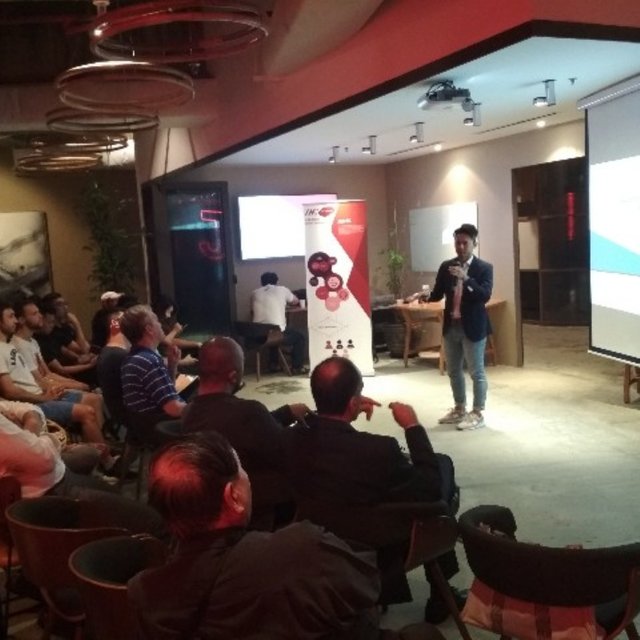Quanta claims to have created the first legal lottery on the blockchain globally.
Quanta is a blockchain based crypto gaming platform. While it has been in development since 2015, it is only now coming out of a beta in February 2018. The first major use case is an online lottery system. Unique Selling Proposition is that is the first legal gaming platform based on the blockchain. Like many other gambling and gaming platforms involving money and an element of chance, they are incorporated in the Isle of Man.
From a pure technological perspective, Quanta is interesting because it takes the applicability of Ethereum a step further than just an ERC-20 / ERC-223 standards of creating tokens. They have created RANDAO which is basically an open source random number generator that allows open validation. A breath of fresh air compared to 99% of the ICOs out there.
The whitepaper claims that it is a decentralized gaming system. However, upon closer examination, one can see that this is not absolutely true. There are many centralization points of the organization and system. The legal entity of the company itself. Besides that, that not all of the system is actually on the decentralized blockchain.
The presentation slide deck itself had some interesting nuggets but quite apparently missing from the website. I would suggest that Quanta make available the slide deck or update the whitepaper to include diagrams and details in the slides.
In fact, the only part that is really on the blockchain is the RANDAO. Actual distribution of winnings are still done traditionally with human intervention. Besides that, the requirements of KYC (Know Your Customer identification typically required by financial institutions) goes up to level KYC3; i.e. highest level? So one can forget about anonymity. The highest level of KYC and requirement to reveal your cryptocurrency addresses means that the government and financial institutions will have complete visibility of your transactions. If you are all for privacy, you should completely avoid this service. Satoshi-dice it is not.
Upon closer inspection of the code on githubit is apparent that there has not been much open source development. All the code online was posted once 6 to 7 months ago and never been updated since.
At the very least though, it is a good experiment in mixing the strengths of blockchain (security, openness) and confidence and knowledge of a more traditional client-server architecture.

Interesting analysis @travellife.
Do you see a need for blockchain in this use case?
Yesterday, the speaker mentioned trust and fairness is the key problem blockchain solves with lottery systems... is it really?
What do u think?
Downvoting a post can decrease pending rewards and make it less visible. Common reasons:
Submit
Yes, I can certainly see an open blockchain being used very well in the lottery / gambling use case. Certainly a possible business opportunity. I also appreciate that such a system would encounter huge technical and legal challenges.
Mentioning trust and fairness though does not necessarily make it fair. For one, there is only open source code for inspection on the Random number generator. How is money deposited and how are payments made out. Quanta is missing out on a huge opportunity to make this part transparent. If they are only going to make part of the operations transparent, then why use an open blockchain like Ethereum at all?
From the limited information / code available, I am given the idea that payouts are still controlled by Quanta. Meaning that you can win the lottery and have your payout stuck at the company. This is centralization is it not? Why is the code not on github?
On a high level you would architect a complete blockchain gambling system to do the following:
Company should not be able to touch anything in the smart contracts from step 2 onwards.
Downvoting a post can decrease pending rewards and make it less visible. Common reasons:
Submit
Congratulations @travellife! You have completed some achievement on Steemit and have been rewarded with new badge(s) :
Click on any badge to view your own Board of Honor on SteemitBoard.
To support your work, I also upvoted your post!
For more information about SteemitBoard, click here
If you no longer want to receive notifications, reply to this comment with the word
STOPDownvoting a post can decrease pending rewards and make it less visible. Common reasons:
Submit
Your post has been manually curated by superoo7
You’ve been upvoted by TeamMalaysia Community :-
To support the growth of TeamMalaysia Follow our upvotes by using steemauto.com and follow trail of @myach
Vote TeamMalaysia witness bitrocker2020 using this link vote for witness
Downvoting a post can decrease pending rewards and make it less visible. Common reasons:
Submit
Thank you for writing about Quanta tour in Malaysia, since I've been an investor of Quanta, and I'm interested in the activity of Quanta all over the world.
Downvoting a post can decrease pending rewards and make it less visible. Common reasons:
Submit
Video report / interview with Quanta.
Downvoting a post can decrease pending rewards and make it less visible. Common reasons:
Submit